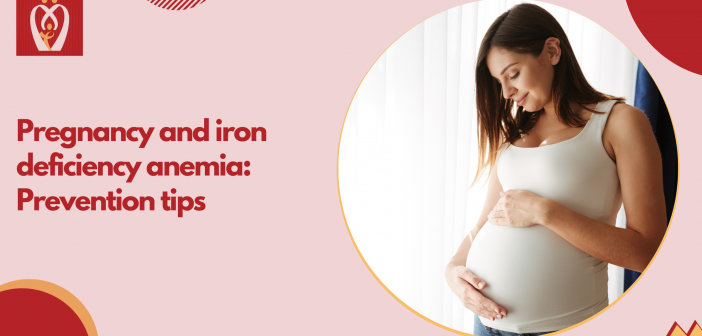Haemoglobin is made in your blood by your body using iron. An enzyme in red blood cells, haemoglobin, transports oxygen to your cells. Pregnancy increases your blood volume and hence your demand for iron. Oxygen is supplied to your baby through your body’s iron-rich blood. It’s possible to develop iron deficiency anaemia during pregnancy if you don’t have adequate iron reserves or if you don’t obtain enough iron.
In what ways might iron deficiency anaemia harm the unborn child?
Premature birth is more likely if a pregnant woman has severe iron deficiency anaemia during pregnancy. Additionally, low birth weight and postpartum depression are linked to iron deficiency anaemia during pregnancy. A number of studies have also shown an increased risk of newborn mortality just after or before delivery.
When pregnant, what are the risk factors for iron deficiency?
Anaemia during pregnancy is more likely if you are:
Plan two pregnancies that are a short time apart from one another.
Pregnant with more than one baby/
Vomiting regularly due to morning sickness.
Don’t eat enough iron-rich foods to meet your needs.
Have a heavy menstrual flow before pregnancy.
You must have had anaemia in the past.
Sympotoms
The following are symptoms of anaemia:
- Fatigue
- Weakness
- Feelings of faintness or dizziness
- Headache
- Pale skin
- Weakness in the lungs
- A desire for or a need to consume ice
Among the possible signs of severe anaemia are:
- A pounding in the chest
- Blood pressure is low
- An inability to focus
Anaemia during pregnancy symptoms are generally comparable to those of general anaemia. Even if you don’t have any symptoms, you will be subjected to prenatal blood screenings to check for anaemia. Consult your GP if you have any concerns about your current degree of tiredness or any other symptoms.
What can be done to prevent and cure iron deficiency anaemia during pregnancy?
Iron is often included in prenatal supplements. When pregnant women take an iron-fortified prenatal vitamin, they may avoid and cure iron deficiency anaemia. In specific instances, iron supplements might be prescribed by your GP or other healthcare professional. The daily need for iron during pregnancy is 27 milligrammes.
Pregnant women may avoid iron deficiency anaemia by eating a healthy diet. Lean red meat, chicken, and fish are all good sources of iron. Breakfast cereals, dark green leafy vegetables, dried beans, and peas are other good sources of iron.
The iron found in animal products, such as meat, is the most readily absorbed by the body. Iron from plant sources and supplements may be better absorbed if consumed with a meal or drink rich in vitamin C, such as orange, tomato, or strawberry juice or smoothies. Avoid calcium-fortified orange juice if you’re taking iron supplements. Pregnant women need calcium, but too much of it might interfere with iron absorption.
What are the treatment options for iron deficiency anaemia during pregnancy?
Your GP may suggest testing if you are anaemic despite taking a prenatal supplement that includes iron. If you have a blood problem, you may need to consult a specialist in the field. If iron deficiency is the root of the problem, your GP may advise you to take more iron supplements. Iron may be given intravenously if you’ve had gastric bypass surgery, small intestinal surgery, or are unable to take oral iron supplements.




